Check out Multi-talented Author CJ Moseley!
CJ Moseley is an independent author of Sci-Fi, fantasy, and horror stories. I enjoyed talking with him and reading his interesting answers to the questions. Check out our exclusive interview where we talk about his books, and his journey as an Indie author.
I’m CJ Moseley, I’m originally from a tiny post-industrial hamlet called Benthall in Shropshire, a rural County of England that’s right on the border with Wales (Cymru), and grew up planning a route out.
When I was 18 I reached escape velocity and left to study Physics at the University of Liverpool. I met my wife and we still live there. I moved, over time, from Physics, through Theatre Management, being stabbed in the ear, a scaffolding tower collapse, a shamanic crisis, rehabilitation, working as a juggler, magician, games developer, multimedia and web developer, until I started writing Indie Novels around the time I became a full-time Dad.
What led to your interest of writing Sci-Fi, horror, and fantasy books?
Years of reading them growing up, which means it’s all my Dad’s fault.
I grew up watching (and reading novelizations) of Doctor Who, Blake’s 7, Sapphire & Steel, Star Trek, and so on, my first trip to the cinema was to watch Star Wars at the age of 4.
The only problem was I was dyslexic and couldn’t grasp reading until I was about 8. My teacher started reading us The Hobbit, and finally, due to deciphering the runes (literally) I finally grasped the written word, and never looked back. Dad kept the house full of books, from old Eagle annuals to Asimov, Clark, and well, lots of others.
I read our house dry, Sci-Fi, fantasy, horror, thrillers, comedy, even trying my Mum’s books (historical romances, not really for me), then I started borrowing, from friends and their parents, the nearby town library, again read dry.
I think all the Sci-fi is what sent me into studying physics, and lots of the greats were scientists or engineers before becoming authors. I chose the same route.
What can you tell us about your ‘Paradox War’ Trilogy?
One of my beta readers described it as Harry Potter meets The Terminator, but nothing like either, which is as close as anyone has got to summing it up so far.
It opens as pure science-fiction, with an alien abduction, and then chapter two introduces a half-elf wizard, who is working for the alien’s machine-god, chapter three adds a shape-shifting minotaur priest to the mix (and his goddess), and it then cycles between those three characters, each getting a chapter in turn.
The trilogy looks like three very different stories across three books, which in best time-travel tradition, interfere and interweave with each other until the end when…Well, let’s just say that, by the end, every question asked, has an answer, and in best science-fiction tradition we’ve discussed the nature of humanity, Religion, reality, and personal and divine morals, as well as having imagined some really cool, mind-blowing stuff, and had a few laughs too.
According to you, what makes your work stand-out from the rest?
Well, obviously it’s me. Every writer’s work should be unique, because they are unique. I’m not trying to write like someone else. I don’t have a style editor telling me to make it more Asimov, or less Douglas Adams, or to dumb it down as there isn’t a market for high-concept science-fantasy.
I write books I want to read, fun, smart, witty, satirical, with deep thoughts.
I’m a deep thinker, and have tried to reconcile my own scientific training with my own, less than explicable, experiences. The Paradox War was part of that process, sarcastically and satirically attempting to reconcile dogmatic religion, atheism, science, forteana, and personal spirituality… and then I added some jokes.
Tell us a bit about your journey as an Indie author. How did you started and familiarized yourself with the process?
I didn’t set out to be an Indie author, I just had a story that I needed to write. I’d tried telling the story as a role-playing game and that had worked well, but I wanted others to enjoy it.
I didn’t have the skills to make a movie, or comic book (I’m just not that sort of artist), but I decided I could probably write a novel.
I actually started out by reading Campbell’s “Hero’s Journey“, and then I moved into note-making (dissecting every time travel story I could think of first) , sketching the story out in terms of scenes, sticking quite closely to the ‘hero’s journey’ although triplicated and wrapped back, like Ouroboros, upon itself.
Then I wrote the text, writing in the cloud with whatever was at hand, a computer, a phone, a netbook or borrowed tablet… Mostly my phone. I was looking after two young sons at home by then, so it was about minutes between nappy changes, or sat cuddling kids to sleep at night, while typing.
Finally, I moved to Word, when the youngest started Nursery, and I’d get mornings, or afternoons, free to edit. Doing the hard parts of smoothing the story out, deleting diversions, fact-checking, editing and correcting grammar errors caused by hours between words. It was about then I realized I’d written a trilogy, split the book up and massaged it a bit further.
Now I have a more streamlined note on paper, write to cloud, edit to file, process.
Any advice for indie authors when it comes to publishing, editing, cover art and what I believe to be the toughest, marketing?
Do as much as you can yourself, use the cloud so you can write a rough, or 1st draft, anywhere (on the bus, at a desk, in bed, on the loo, wherever), learn how styles work in Word it makes converting so much easier (in fact just learn Word it’ll help with office life too), e-books are just Web pages, learn how one works and you’ll understand the other better. Oh, save often if you are working on a static file and, during editing, track your changes. You might find it helps to have a computer read your text while you’re editing.
For Cover Art download Inkscape and Gimp 2 (or any other free graphics software) and play around with them, it takes practice to get good, even just putting text over stock photos has a skill to it that is worth learning. There are tutorials all over the video-webs and blogosphere, and you might even enjoy it, nothing beats the ridiculous thrill of being able to photoshop your holiday snaps so Godzilla is in the background before adding to Facebook.
I always had an artistic leaning (but never practiced enough to draw comics consistently), and was a trained multimedia artist. So, I made my own covers. That was my only option price-wise as well. I looked at similar covers and I thought about symbology (because I’m one of those sorts of people) and what the cover should say.
I had a few misses, and the market changes fast, don’t be afraid to change up a cover with a new edition.
I’ve worked in projects with designers (and was briefly employed as one). If you are going to commission a cover then have a strong idea you want.
Think about the image and describe it, just as you would a scene description. Think of it as the book within the book, and describe it in the same terms as the book uses. This lets your cover artist know exactly the themes and styles you are thinking about, as well as the visual content. Talk in warm and cool colors, textures and so on, but don’t forget to paint the picture in words.
Marketing is the toughest part of the business, and is getting tougher, I think. There are more books and more writers than ever before and it can be difficult to be spotted in the crush (I certainly feel that).
I personally have never spent a dime on selling my books, because you can spend thousands of dollars (they’re usually dollars we get asked to spend on the web) on marketing, advertising, and so on, and most of it is wasted cash. I learned that as a web developer.
Adverts are only worth using if you can get hold of cheap deals, free bonuses, and similar incentives, unless you have a day job and lots of equity to blow on them.
Reviews are probably a better bet, but I distrust paid review services.
My advice, get on social media, especially Goodreads, and try to make friends, ideally do this before you start writing, but whenever you can works.
Shouting buy my books, never works, giving them away free rarely gets you reviews, (I have given away over 800 copies of An0ma1y and got 1 review for my trouble, although it was a brilliant review…) and who knows if anyone will actually read that freebie download anyway. But apparently if you rant about how no one ever reviews freebies on Twitter, and ask someone who replies to take a look, then sometimes they will buy the book, and review it.
Everyone says it, and I’m starting to get a handle on it now, but it really is about finding your readers at first, and letting them find you later. Have mailing lists that people can follow, or a blog, and tell people on Goodreads groups about your book. It’s horrible, but unfortunately necessary, Indie authors have to embrace that inner salesperson, it’s okay, it is also that part that lets you sell that third act turnaround too.
 What are your thoughts regarding Indie and traditional publishing?
What are your thoughts regarding Indie and traditional publishing?
I never tried to get a publisher, or an agent, right now there’s very few of them looking for new voices, and the usual route of publishing short stories, and making a name for yourself in magazines, and recently on the web writing fan-fiction, I had accidently avoided by writing a novel first.
Rather than getting rejected, because no one could understand how to market it, or have an editor force cuts to book 1 that are crucial to book 2 or 3, I decided to self-publish.
My only problem is that I wish these huge multi-nationals would remember that we are not all American, and pay our Taxes here not in the US first, getting American Tax details is an arcane art best left to professionals, so I pay emergency American Taxes on my American sales and they claim it back via political and economic skullduggery here.
I’m not opposed to big publishing houses and not having to do it all myself, but I don’t think their editors would get my writing, the way my readers do.
Traditional publishing seems to be struggling a bit at the moment, rather like the hardback giants did when paperbacks came along. I’m sure they’ll get there, but at the moment they seem to be railing against the tide, and persuading “published authors” that we Indies and Amazon are trying to steal their readers and destabilize the market with cheap e-books.
I just can’t charge what they do with a clean conscience, when I’m not supporting an agent, three editors, a typesetter, a cover artist, those PR people, the web team, lawyers, accountants, and the IT department.
That said, I’m sure there’s lots that an agent might be able to do for me, but I’m not going to seek them out, when I could be writing.
Do you have any upcoming works we should know about?
Well, right now, I’m polishing off a new Mosaic Novel, it’s something a little more commercial than Paradox War, called “Ironmaster & Other Tales” it started life as a steampunk allegory composed of interlinked short-stories, novelettes and a novella.
Set in an alternative Steampunk 1980s with punk bands, mad science, flying ships, aerial pirates, rocket ninjas, fairies, mythology, alchemy and magic, as well as
Of course, being about punks I’ve added, a cup of bad language, a dollop of dark faery tales, a few spoonful’s of occult detective stories, a smidge of time-travel, some cauldron-born former slave castes, and a few chuckles along the way.
You can get to know more about CJ Moseley and his work by visiting his blog. Once there you can also check out the RPG System he’s working on titled Terminal Thirteen or T13.
You can also follow him on Twitter.
Have you read books by CJ Moseley? Let us know!
Author: Farid-ul-Haq
Farid has a Double Masters in Psychology and Biotechnology as well as an M.Phil in Molecular Genetics. He is the author of numerous books including Missing in Somerville, and The Game Master of Somerville. He gives us insight into comics, books, TV shows, anime/manga, video games, and movies.
Help support independent journalism. Subscribe to our Patreon.
Copyright © The Geekiary
Do not copy our content in whole to other websites. If you are reading this anywhere besides TheGeekiary.com, it has been stolen.Read our

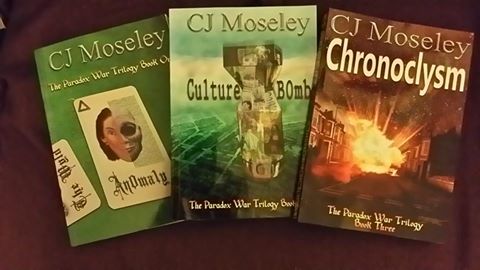
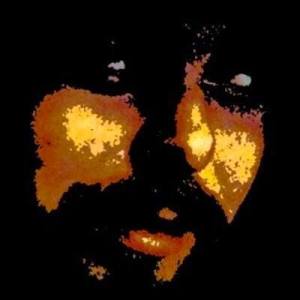
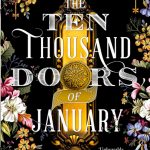
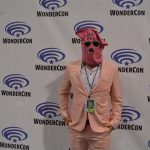
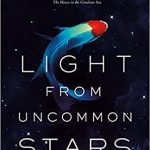
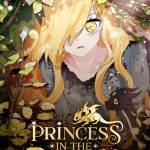
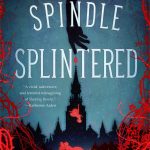
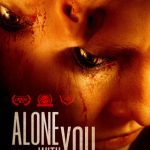
I ‘found’ CJ Moseley in the Goodreads time travel group where he’d made some really insightful comments about…time travel! I ended up clicking through to his website where I found an incredible page about time travel paradoxes. Knowing that CJ has a clear understanding of time travel (and a great promotional video!) I bought An0ma1y.
It’s fantastic!! The first chapter had me hooked with time travel, alien abduction and a fascinating main character. I’m nearing the end now, and I’ll definitely be reading Culture B0mb and Chronoclysm.
Every paragraph stretches the mind with new ideas which have been clearly thought out, and knits together many differing facets of science from many disciplines. I shudder to think about the amount of work that must have gone into this…and did I read right…CJ did this whilst changing nappies?!!
If I were to use one word to sum it up so far, it would be “mind-blowing”. Or is that two words?